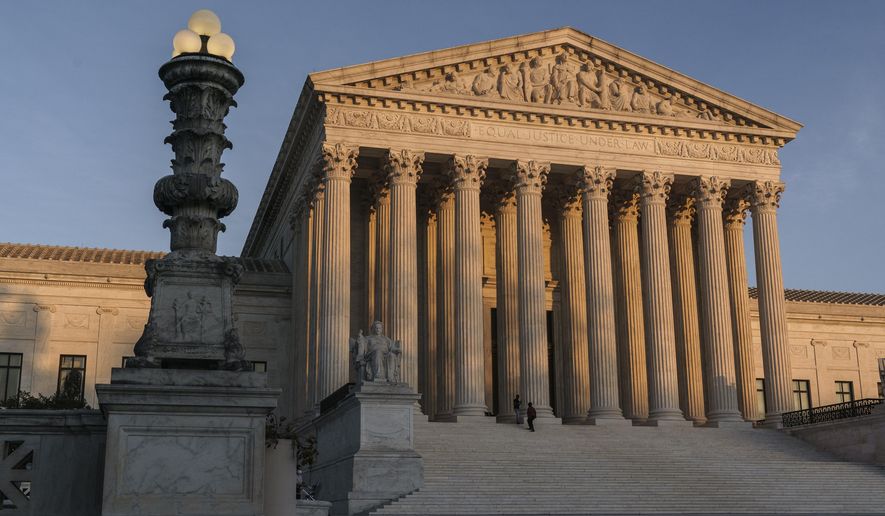Give us an “F!” Give us a “U!”
The Supreme Court is wading into a cheerleader’s free-speech lawsuit against her high school over booting her off the squad because she posted “f—k cheer” on social media.
The raunchy message was written in a Snapchat photo of the girl flipping the bird.
“F—k school f—k softball f—k cheer f—k everything,” read the caption posted by a Pennsylvania teen, who was identified only as B.L. in court papers because she is a minor.
B.L.’s anger at the time may be understandable: She didn’t make the varsity cheer squad for her sophomore year. Still, Mahanoy Area School District said she violated school conduct standards and wouldn’t even be allowed on the JV cheering squad.
The teen’s parents sued in federal court and won. The school district appealed. Now the Supreme Court is reviewing the case, which tests the limits of the First Amendment and the authority of schools to police students’ off-campus conduct.
B.L. fired off the foul-mouthed Snapchat on a weekend while out shopping with a friend.
She did not have on a school uniform in the photo or mention the school’s name. But once Mahanoy Area School District officials became aware of the post, they decided she violated school policy that requires cheerleaders to avoid “foul language and inappropriate gestures.”
The parents argued their daughter’s First Amendment rights were violated.
“As a parent, I know that sometimes kids do foolish things. But when my daughter is on her own time and out of school, it’s my role as a parent to address her behavior. In this situation, I did that and felt that the school overstepped its bounds,” said Larry Levy, B.L.’s father. “We’re in this case because we don’t want to see schools have the power to discipline students for what they do on their own time. Leave that authority to parents.”
They filed the suit in 2017 and won in the lower courts, which got their daughter reinstated on the squad.
B.L. has since graduated from high school but the legal fight goes on.
The district pointed to five other federal appellate courts that have considered similar student-speech cases and ruled that a school may discipline off-campus speech if it has a nexus to the classroom.
“Teachers and administrators within the Third Circuit will henceforth be subject to money damages in civil rights suits for addressing off-campus speech that schools in other circuits routinely proscribe to avoid substantial disruptions to the school environment,” said the lawyers for the school district.
The technology and social media “acts as a megaphone for off-campus speech, ensuring that it reverberates throughout the classroom and commands the school’s attention,” they said, adding that B.L.’s social media post caused students to be “visibly upset.”
The American Civil Liberties Union, which is representing B.L., said the high court has ruled in cases dating back decades that school officials can only punish student speech when it is substantially disruptive or threatening.
“The notion that a school can discipline a student for that kind of spontaneous, non-threatening, non-harassing expression is contrary to our First Amendment tradition, and finds no support in this Court’s student speech cases,” the ACLU said in court papers.
The leading student-speech precedent comes from the landmark 1969 case, Tinker v. Des Moines Independent Community School District, which arose from a group of students wearing black armbands as a political statement opposing the Vietnam War.
They were suspended for breaking school rules. The Supreme Court famously ruled for the students, saying they do not “shed their constitutional rights to freedom of speech or expression at the schoolhouse gate.”
Eugene Volokh, a law professor at the University of California, Los Angeles, said historically conservative and liberal justices have come down differently in various student-speech lawsuits, making an outcome difficult to predict.
“This isn’t the kind of thing where one can quickly say this is a libertarian justice or this is a more pro-government justice,” he said. “Different justices react to them differently.”
The court has not yet set a date for oral arguments in the cheerleader case.
• Alex Swoyer can be reached at aswoyer@washingtontimes.com.




Please read our comment policy before commenting.